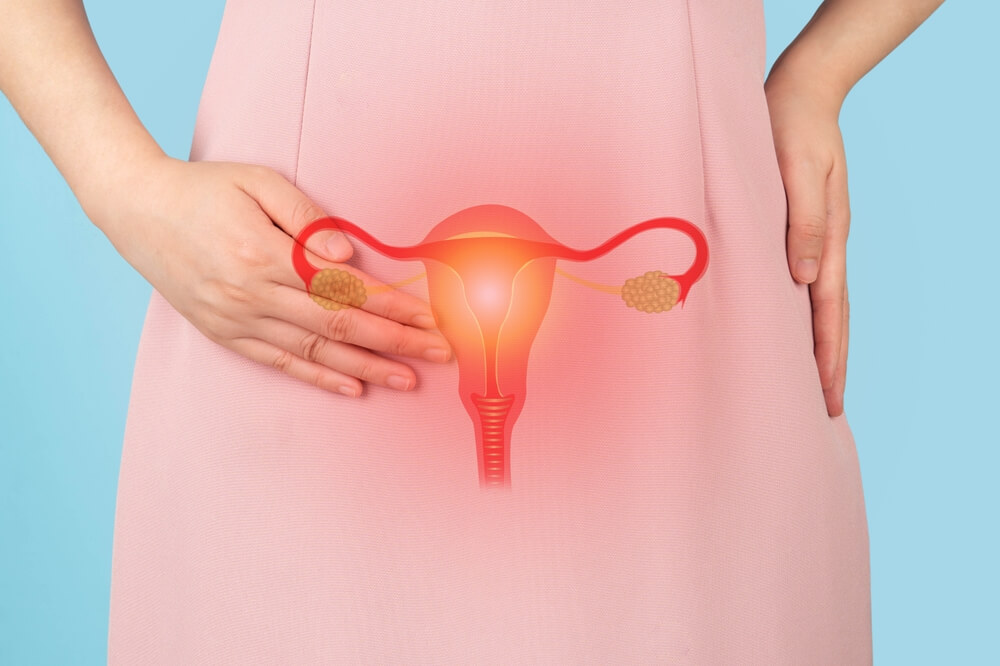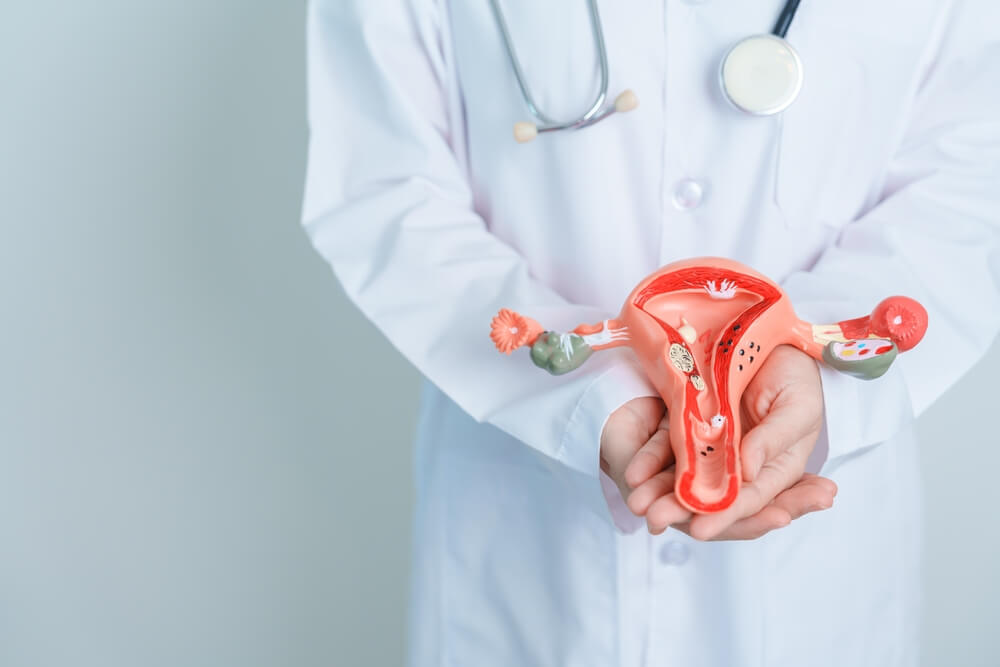Endometriosis is a prevalent health issue affecting millions of women globally. This condition, characterized by the growth of uterine-lining tissue outside the uterus, often leads to severe discomfort and may even interfere with daily routines. Endometriosis may also impact fertility. Nevertheless, understanding and managing symptoms is crucial for enhancing overall quality of life and well-being.
Beyond medical treatments and surgeries, many women seek alternative ways to alleviate the pain and other symptoms of endometriosis. One method gaining traction is the utilization of home remedies that range from dietary modifications to basic physical activities. These solutions are not substitutes for medical interventions, but they can supplement them, often making a significant difference in symptom management.
Clinics such as My OBGYN Specialists offer both medical advice but also guidance when it comes to alternative therapies because different approaches help different people.
Home remedies, specifically those camera natural, holistic, or herbal-based, have validity in the realm of healthcare. Their reputation stems from the fact that they are typically free from harmful side effects, are often affordable, and can be conveniently integrated into our daily routines.
From acupuncture and yoga to herbal teas and essential oils, these treatments bring potential benefits and provide an additional layer of support for women navigating through endometriosis.
The fruits of employing these home remedies can be truly life-enhancing, especially when committed to consistently. Let us unravel this world of therapeutic self-care and natural remedies for endometriosis and how they can make a significant impact on your journey toward a healthier, more comfortable life.
Comprehensive Understanding of Endometriosis
Causes and symptoms
While the precise causes of endometriosis are yet unknown, potential factors include hormonal imbalances, genetics, immune system disorders, and certain surgical procedures. At the heart of endometriosis lies a unique phenomenon where endometrial tissues, ordinarily confined within the uterus, grow outside it, generally in the pelvic area. This errant tissue reacts to the menstrual cycle, thickening, breaking down, and bleeding, but has no exit route, leading to painful complications.
The most common endometriosis symptoms are:
- pain,
- heavy menstrual bleeding,
- pain during intercourse,
- pain during bowel movements or urination,
- excessive bleeding,
- fatigue,
- infertility.
The severity of symptoms varies considerably among individuals. However, it is worth noting that the extent of pain experienced does not always correlate with the severity of the disease.
Conventional treatment options available
Professional treatment for endometriosis aims to alleviate symptoms and manage any potential complications. Hormonal therapies often assist in reducing or eliminating the pain of endometriosis by helping control the hormonal fluctuations that encourage the errant tissue’s growth. These can include birth control pills, gonadotropin-releasing hormone (GnRH) agonists and antagonists, progestin therapy, and even aromatase inhibitors.
Pain medications, both over-the-counter and prescription, can often reduce the pain symptoms related to endometriosis. In severe cases where symptoms persist despite other treatments, surgery, ranging from conservative surgery to remove the endometrial growths, to more aggressive options like hysterectomy may be discussed. However, these are typically last-resort measures.
It is vital that this traditional medical advice is integrated with natural endometriosis treatments and at-home regimens that can help keep the condition in control and improve quality of life. Combining a holistic approach to endometriosis with medical treatments often results in more comprehensive relief.

Exploring Home-Based Solutions for Endometriosis
Importance and Role of Diet Modifications
A cornerstone of natural endometriosis treatments lies in dietary modifications. Adopting natural dietary changes for endometriosis can do wonders in managing symptoms and improving the overall quality of life. The consumption of a balanced diet rich in nutrients plays a critical role, as it impacts hormonal balance, inflammation, and the immune system. Emerging research even suggests that dietary changes may affect the progression of endometriosis.
Often, the suggested alterations include a shift toward organic, unprocessed foods since they lack additives that might promote inflammation. Nutritional therapy for endometriosis often endorses the consumption of fruits, vegetables, and whole grains while limiting the intake of red meat, caffeine, and alcohol.
A diet high in omega-3 fatty acids and low in trans fats has also been linked favorably with endometriosis management. Some women have also sworn by certain endometriosis supplements at home, such as vitamins, minerals, or herbs, always taken under a healthcare provider’s supervision.
Value of Stress Management Techniques
A crucial yet often overlooked part of a holistic approach to endometriosis is stress management. Chronic stress wreaks havoc on the body and can exacerbate endometriosis symptoms. Therefore, embracing stress-relieving practices such as homemade endometriosis solutions is highly beneficial.
Yoga is one such effective technique; specific types of yoga can provide both physical and mental relief. Practicing remedial yoga for endometriosis fosters physical relaxation and can enhance pain management, particularly during flare-ups. It also serves as a calming workout regimen for those with limited mobility during painful periods.
Other stress management strategies, such as meditation and mindfulness, have been deemed valuable for endometriosis patients, reducing pain levels and enhancing overall well-being. Techniques like acupuncture for endometriosis relief offer a blend of physical and mental stress relief, enhancing comfort and relaxation.
Finally, the use of essential oils for endometriosis has been explored for their potential relaxation benefits. Lavender and chamomile oil have been identified as possible tools to manage stress and promote sleep, which could be used as part of a broader endometriosis pain management plan.
Integrating Natural Supplements and Therapies
Role of Vitamins, Herbs, and Other Supplements in Managing Symptoms
Supplementing diet can play a considerable role in endometriosis symptom relief. Endometriosis supplements at home, particularly those rich in certain vitamins, are considered an integral part of natural endometriosis treatments. For instance, Omega-3 fatty acids, often available as fish oil supplements, improve inflammatory conditions and could help manage endometriosis symptoms.
Vitamin D has potential benefits in managing endometriosis as it reportedly inhibits the proliferation of endometrial cells. Similarly, Vitamin B6 helps regulate estrogen and progesterone levels, playing a role in managing hormonal symptoms related to endometriosis. Moreover, Magnesium can aid in muscle relaxation and potentially alleviate menstrual cramps associated with the condition.
Herbal remedies for endometriosis have been used in traditional medicine for centuries. While more research is needed to verify their effectiveness scientifically, many women have reported symptom relief from herbs such as chasteberry, curcumin, and green tea. Herbal tea for endometriosis has also been promoted as a calming, pain-relieving treatment.
Benefits of Alternative Therapies such as Acupuncture and Physical Therapy
Alternative therapies, including acupuncture and physical therapy, can provide beneficial adjunctive support for endometriosis symptom management. Acupuncture for endometriosis relief stimulates specific anatomical points, primarily by inserting thin needles into the skin. It’s thought to help reduce pain and inflammation while promoting relaxation.
Physical therapy home-based endometriosis therapies are a non-invasive approach that can alleviate pelvic pain and reduce muscle tension associated with the condition. Therapies like pelvic floor exercises and stretches can be integrated into a daily routine, offering a practical and effective homeopathic endometriosis relief strategy.
It’s important to remember that these therapies and supplements are meant to improve conventional treatment outcomes and should be adopted in consultation with a healthcare provider. However, the integration of these homemade endometriosis solutions may aid substantially in managing endometriosis symptoms, promoting a healthier, more balanced life.
Empowerment Through Personalized Approach and At-Home Management
Everybody is unique, and so are the experiences with endometriosis. As such, it is of utmost importance that healing mechanisms are personalized. These might include natural endometriosis treatments, home-based endometriosis therapies, nutritional changes, and remedies that cater to individual needs and circumstances.
While the pain and discomfort can often be overwhelming, the myriad strategies available today allow one to regain control and minimize the impact of endometriosis on daily life.
That said, even as we open up to holistic, alternative practices, it is essential to consult with a healthcare professional. While homemade endometriosis solutions can complement traditional medical treatments, they must be appropriately integrated into your care plan under a provider’s guidance. From taking specific endometriosis supplements at home to adopting dietary modifications and stress management techniques, each step should be undertaken in consultation with a healthcare provider.
The journey towards managing endometriosis is undoubtedly challenging and filled with trials and uncertainties. Yet, the power to influence one’s health positively largely rests within our reaches, right at home. By embodying a holistic approach to endometriosis, recognizing the importance of dietary and lifestyle changes, and embracing natural treatments, we grant ourselves a significant armory to combat this condition.
Ultimately, the objective is not just to manage the symptoms but to elevate overall well-being. Real empowerment comes from understanding how certain practices can alleviate discomfort, promote health, and bring about positive change. In this endeavor, every step counts, each successful day is a testament to personal strength, and every bit of progress is a massive stride towards a better quality of life. Let us help you fight this challenging condition – call us today and let our experts support you and give guidance for your better life quality.


